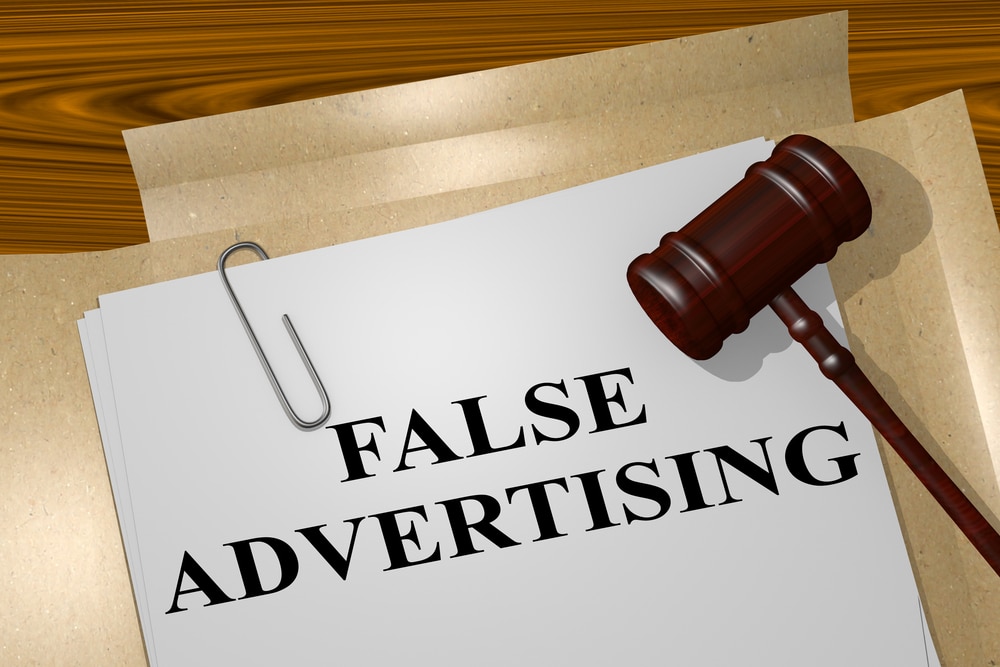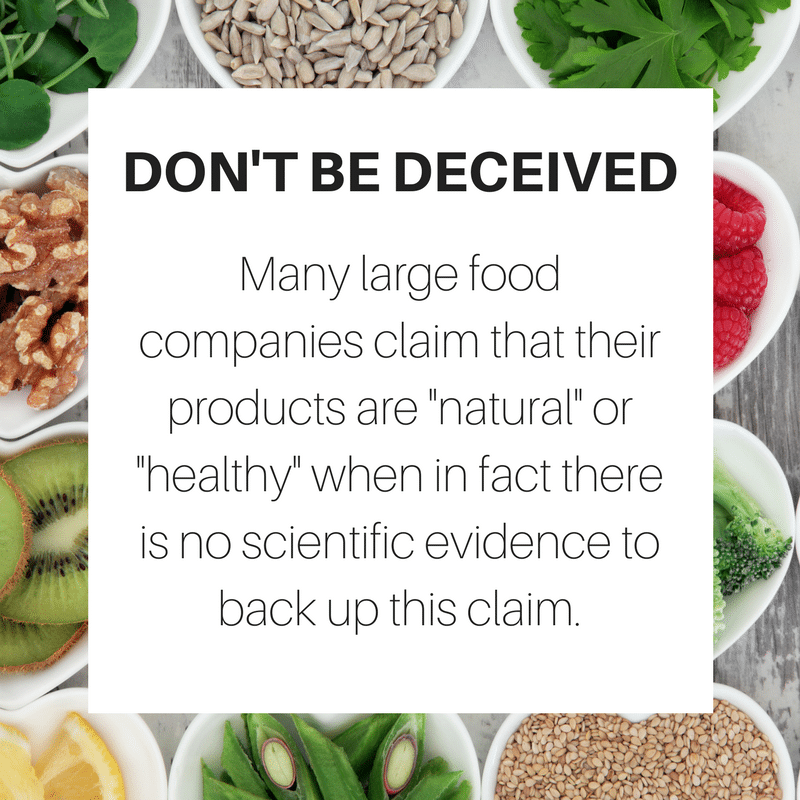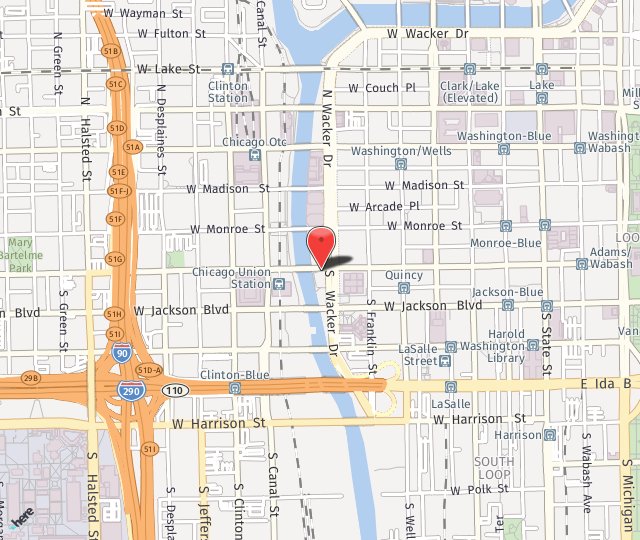CONSUMER RIGHTS LAW FIRM SERVING CLIENTS IN CHICAGO, ILLINOIS, AND NATIONWIDE
As a consumer, you should be able to trust that the services and products you purchase will deliver as promised by the seller's advertising descriptions. Unfortunately, many companies make false or misleading claims in order to deceive consumers and bolster sales. Some of the largest recent class action false advertising lawsuits have been against major food and drug companies.
If you have been deceived by false advertising, contact Markoff Leinberger consumer law attorneys at 312-726-4162 for a free case evaluation. Consumers have the right to truthful advertising, and you could be entitled to compensation.
Patient Reviews
Karl Leinberger and the team at Markoff Leinberger skillfully represented me in a case that involved deceptive advertising on the part of a well-known retail drug store chain. They were professional, communicative, and successful in reaching a fast and fair settlement. –H.G.
What Are the Most Common Types of False Advertising?

That said, some false advertising violations seem to occur at an alarmingly high frequency. When you hear about these cases, they often center around deceptive or misleading product descriptions, bait-and-switch schemes, and the failure to disclose important product information.
Keep in mind that there are many different types of false advertising. You can help protect your consumer rights by familiarizing yourself with the various scams, tricks, and tactics that exist.
Class Action Litigation
In many instances, the amount of monetary damages suffered by an individual plaintiff is too small to justify filing a false advertising claim. However, when combined with the cases of other victims who suffered the same damages, recovery can be substantial. This is why many false advertising claims are filed as class action suits.
Here at Markoff Leinberger, our attorneys are experienced in handling false advertising class action suits. We represent plaintiffs in cases involving:
- Bait and switch schemes
- Deceptive labeling
- Hidden fees and surcharges
- False promises
- Failure to disclose important information
- Footnote disclaimers
- Shrink wrapped disclaimers or agreements
Consumer fraud laws have come a long way, and now consumers have more power than they often realize to take on unfair or deceptive business practices.
Bait And Switch Schemes
A bait and switch scheme occurs when a company advertises a product or service at a certain price, then does not follow through on that price. It's important to note that advertising one price then trying to upsell the customer on a different, higher priced item is not illegal, as long as the company is willing to follow through on the original price in the end.
Common examples of bait and switch schemes include:
- "Teaser" rates with undisclosed price increases at a later date
- Offering one rate, then adding on other fees and costs
- A price advertised that only applies to a very narrow type of product
If you feel you have been the victim of a bait and switch scheme, don't hesitate to contact Markoff Leinberger for your free consultation.
Food Mislabeling Litigation
It is your legal right as a consumer to purchase foods that are safe and properly labeled. However, big food corporations consistently mislabel their products and make deceptive claims in order to make more sales. In recent years, more consumers have wised up to these tactics and filed suit, forcing companies to retract false statements and pay out settlements.
Some of the food laws and regulations to be aware of are:
- Pure Food and Drugs Act of 1906: Prohibits interstate commerce of misbranded and adulterated foods, drinks, and drugs.
- Nutrition Labeling and Education Act of 1990: Requires all packaged foods to bear nutrition labeling, and mandates that all health claims for food, such as "low sodium" or "low fat", be consistent with standardized definitions.
- Food Allergen Labeling and Consumer Protection Act of 2006: Requires all ingredients derived from 8 allergenic foods be described on the label.
- Food Safety Modernization Act of 2011: Aims to ensure the U.S. food supply is safe by shifting the focus from responding to contamination to preventing it. This is perhaps the most sweeping reform of our food safety laws in over 70 years.

Some of the major brands that have been hit with successful class action suits in recent years include Kellogg's, Nutella, Dannon Activia, and Red Bull. Don't think that just because a company is big they're invulnerable - this is far from the case.
What Is the Statute of Limitations for False Advertising Claims?
There is a deadline to file a lawsuit for false advertising claims. It is known as the statute of limitations. In Illinois, the statute of limitations is generally three years for false advertising claims.
Some of these claims proceed under a federal statute called the Lanham Act, which lacks a statute of limitations. Therefore, the act borrows from the closest state law limitations period. In Illinois, that is the Illinois Consumer Fraud and Deceptive Business Practices Act state statute.
Other potentially relevant federal laws that can apply to these claims include the:
- Consumer Financial Protection Act (“CFPA”)
- Federal Food, Drug, and Cosmetic Act (“FFDCA”)
- Uniform Deceptive Trade Practices Act (“UDTPA”)
- Deceptive Mail Prevention and Enforcement Act (“DMPEA”)
Class action lawsuits may also influence the deadline. Talk to our attorneys to learn how much time you have to take legal action before you will likely lose your right to file a lawsuit forever.
What Kind of Evidence Should I Collect?
Evidence is crucial to any successful legal claim. You should collect any evidence of the false advertising incident in question, such as advertisements or product packaging, as well as proof of the damages you suffered. These damages are often financial in nature, though not always.
Other forms of evidence that can be useful in false advertising cases include:
- Consumer surveys
- Market research
- Expert testimony
How Long Do False Advertising Lawsuits Take?
False advertising claims are typically filed as class action lawsuits. Some class action lawsuits take as little as a few months, though most take a year or more to settle.
Class action lawsuits can last longer if the defendant makes an appeal. Some companies will attempt to fight a class action lawsuit for years. Others will settle quickly to avoid negative press.
What Kind of Compensation Should I Expect?
False advertising lawsuits allow plaintiffs to recover the money they paid for a falsely advertised product or service. You may also be entitled to receive compensation for other related damages. In addition to helping you get your money back, a lawsuit can hold companies accountable for their reckless, misleading, and deceptive business practices. This protects other consumers too.
Schedule Your False Advertising Consultation
If you have been a victim of false advertising, contact Markoff Leinberger today at 312-726-4162 for your free legal evaluation. You can also click here to submit an online contact form to our office. Our experienced attorneys serve clients in and around Chicago, Illinois and nationwide.

